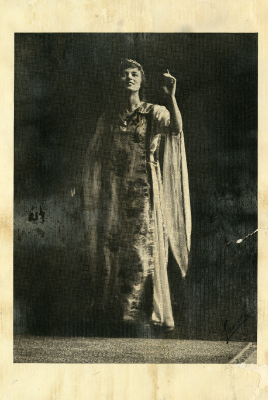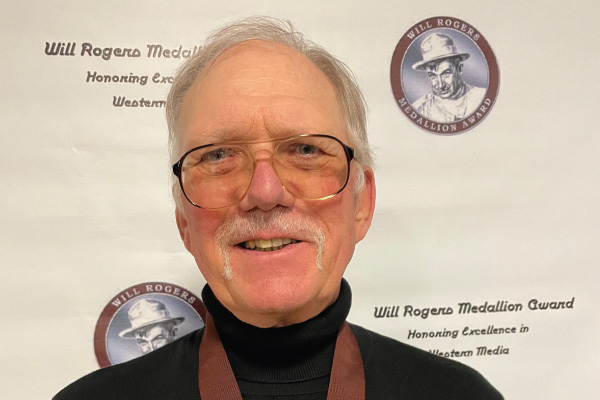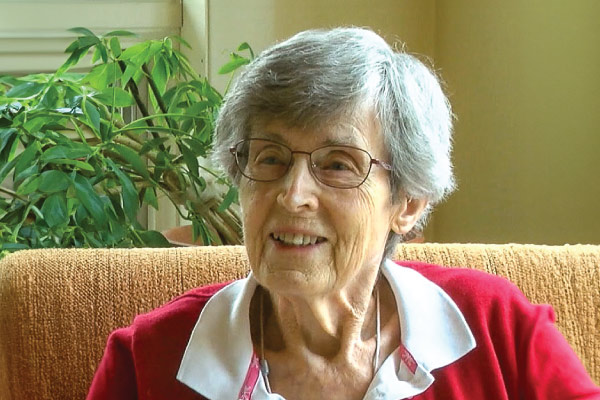A Poetic Path
North Dakotan’s love of the prairie translates into acclaimed literary career.
“You can take the girl out of the prairie, but you can’t the prairie out of the girl.”
Such was the case with Harriet (Mills) McKay, class of 1920, a North Dakota native and nationally recognized poet who moved frequently with her husband, Douglas McKay, class of 1917. Douglas worked in gold mining, managing operations in Utah, Nevada, California, and the Philippines. Throughout the many moves, Harriet’s poetry reflected a longing for the prairie.
“Her poems record her loneliness in remote mining camps and show that she never lost her love for the prairie,” wrote her daughter, Mary McKay Maynard, who donated a substantial collection of Harriet’s poems to UND.

Harriet Mills McKay, class of 1920, acted in many plays while at UND.
Harriet’s Life
Harriett was born in 1896 on the family farm near Park River, North Dakota. She and her three sisters grew up with a love for learning and the land. To fund their UND educations, the sisters took turns leaving school to work as teachers, then re-enrolling to continue their studies. Despite her on-and-off attendance, Harriet acted in many plays at UND and served as secretary/treasurer of the UND senior class of 1920.
While at the University, she met Douglas McKay, a member of the UND football team. The two married in 1920 and began what their daughter described as their “westward wanderings.”
The couple had two children, Robert and Mary, and moved to the Philippines in 1937 for Douglas’ work in the gold mines. When the Japanese occupied the Philippines in 1942, the McKay family fled to the mountain jungles of Mindanao Island. They lived in hiding with guerrillas and other Americans for two years, before being evacuated to Australia by submarine. They returned to the United States in 1944, only to go back to Douglas’ Philippines post in 1947.
Frequent moves didn’t slow Harriet’s creative output; she penned hundreds of poems from various mining camps across the western United States. Over the years, Harriet’s poetry gained national recognition. She was the editor for the “Nevada Number” of Troubadour Poetry Magazine and was frequently published in nationally circulated magazines. Her archives contain a thick index of poems sent to publishers, including those accepted and the payments she received.
Harriet passed away in 1949, just a few months after Douglas, and shortly after they returned to California from the Philippines. According to her daughter, Harriet quoted Shakespeare until the end of her life.
Portulacas
The little pink flowers that grew in the wheat
Are dear to my memory.
Their fresh little faces were cool in the heat;
The little pink flowers that grew in the wheat
Are a symbol of all that is lowly and sweet …
I recall them as plain as can be.
The little pink flowers that grew in the wheat
Are dear to my memory.
Prairie Wings, a Magazine of verse
March 22, 1934


